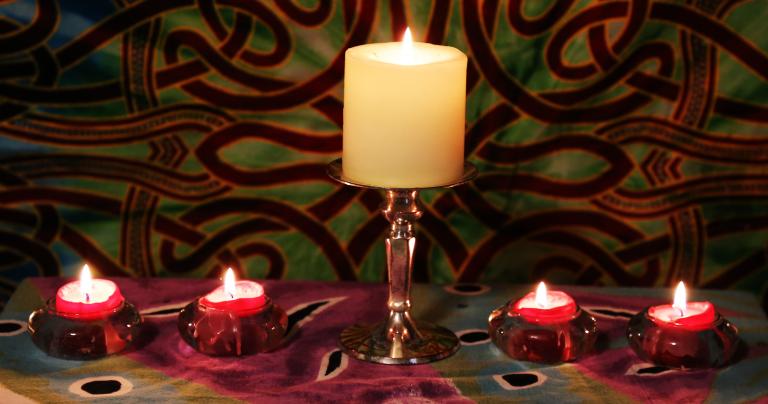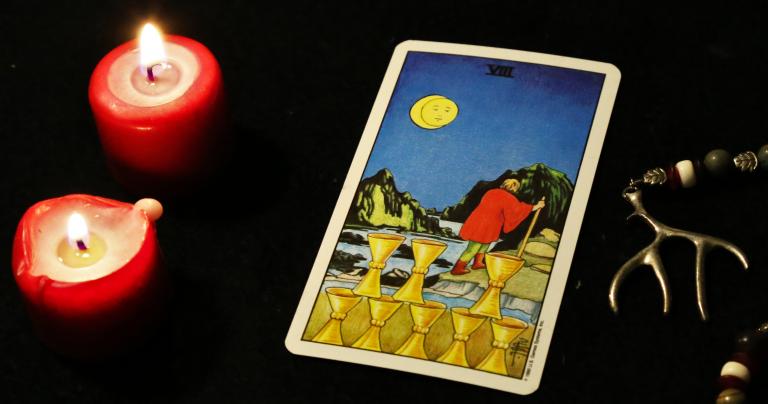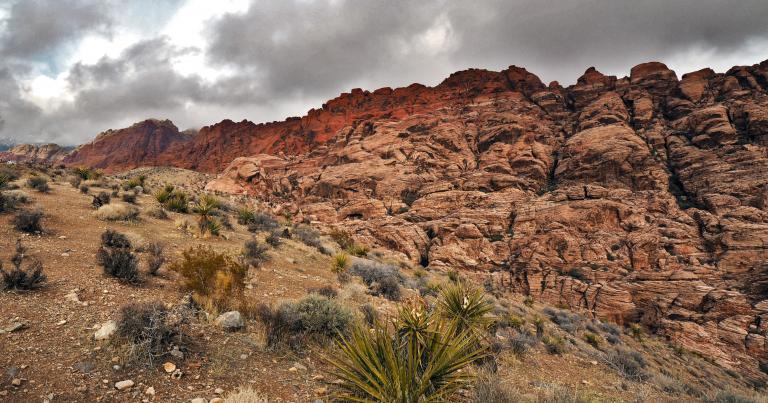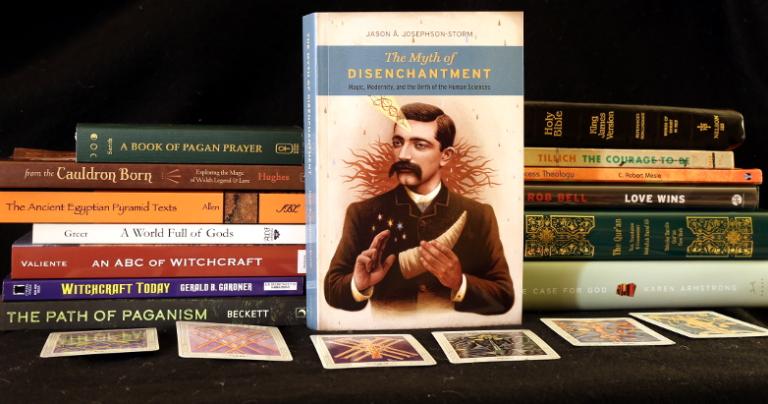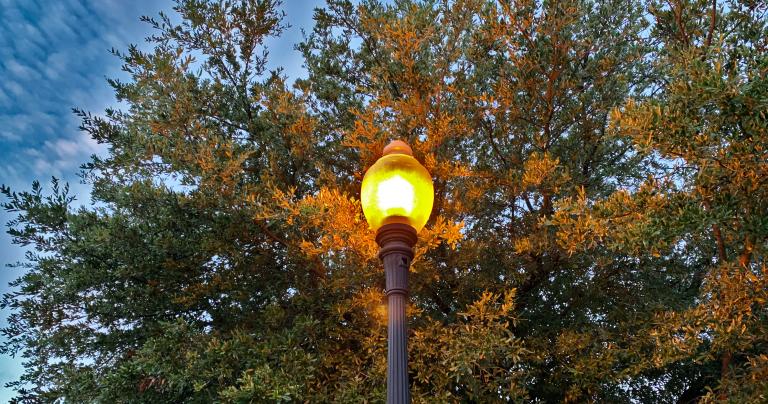The Denton Unitarian Universalist Fellowship
July 26, 2020
I don’t know how I could get through all this without my regular spiritual practice.
Prayer, communion with Nature, offerings to my Gods and ancestors: these things keep me connected to the Source of my strength. They keep me focused on who I am and who I want to be, no matter the circumstances.
Spiritual practice isn’t a panacea. It doesn’t provide protection from Covid-19, and it doesn’t make the isolation and limitations of social distancing any more pleasant. But the practices and the spiritual foundation they’ve helped me build make it possible for me to carry on when it would be all too easy to give in to despair.
Some of you have spiritual practices. Some of you do meditation, Lectio Divina, or any of numerous other spiritual and religious practices. We don’t all do the same things, and that’s fine. We’re Unitarian Universalists – we’re united not by common beliefs or even by common practices, but by shared values… especially a commitment to justice… especially justice for those for whom it has long been denied.
This service is not a primer in Unitarian Universalism, nor is it an introduction to spiritual practice. If you’re new to either one or both of these topics, I hope it will show you what’s possible with consistent practice… if you choose.
Rather, this service is geared toward those who do have a spiritual practice. You’ve been doing something for a while… maybe for a long while. Like me, your practice brings you stability and comfort. It’s something familiar in a world where everything is new and different, and not in a good way. You would never consider giving it up, and I’m the last person who would suggest you do.
But as good as that practice is, every now and then you get the urge, the desire, the call… for something even deeper. And this morning I want to talk about that call to greater spiritual depth.
I like stability
To say I grew up in a stable home would be a massive understatement. My parents were married for almost 50 years. I lived in the same house until I left for college. I never changed schools except for promotions.
I wanted to get away from home, but that was ordinary teenage desire for independence. I’ve never had wanderlust – I wanted to get away from home and build a new home the way I wanted it to be… and then stay there. When Cathy and I built our first house shortly after we got married, I thought that was exactly what I was going to do.
And then my job went away, starting a process that led to three cross-country moves in six years, eventually bringing me here in 2001.
I like stability. If a situation is good, my preference is to stay there and use it as a foundation for further growth, not to walk away because something else might be better – because that something else might be worse. But if I hadn’t made all those cross-country moves – including two I really didn’t want to make – my life would be so much less than it is, in every sense of the word.
The process of religious depth
What happens in our religious and spiritual lives is similar to what happens in our lives as a whole.
Most of us did not grow up UU. The same is true of my other religious identity as a Pagan. We discover something new – something that speaks to us. We start participating, we read books, we take classes… we serve on committees. There’s a process of experience, practice, and contemplation that leads to integration. We stop telling people “I go to the UU church” and start saying “I am a UU.”
That sense of religious identity leads to stability. We’re no longer “seekers” because we found what we were looking for all along… even if we didn’t know what we wanted when we started looking. That stability is a good thing, even a necessary thing.
But there’s a fine line between stability and stagnation. If you’ve been doing the same things in the same way for a long time, perhaps it’s time to take on something new.
The Eight of Cups
This is the Eight of Cups in the Waite-Smith Tarot deck, first published in 1910.
For most of that 110 years it’s been called the Rider-Waite deck, named for Arthur Waite, who conceptualized the deck, and the Rider company, who published it. That name ignored the work of artist Pamela Coleman Smith, a British woman of color who drew and painted the 78 cards. Waite and Smith were both members of the Golden Dawn – by far the most influential esoteric order of the late 19th and early 20th centuries – but only Waite got credit for this amazing work of spirituality. That’s finally starting to change.
Some UUs are skeptical about the Tarot, but you need not believe anything mystical to see the meaning and wisdom in this artwork. The person in the card has turned their back on eight cups, symbols of emotional fulfillment. They’re starting off on a new journey over difficult terrain into unknown territory.
Why would someone leave a good situation – a stable situation – to wander off into the unknown? Or as the title of this service asks, “I like it here – why do I have to leave?”
Why you need to leave
One reason you might leave a comfortable practice is that you need to grow, and growth requires a stimulus. You need to take on something else.
Perhaps you’re knowledgeable and experienced enough that it’s time for you to start teaching. On one hand, our wider society has the idea that religious and spiritual teachers need to be holy people, specially trained in a specific tradition. The UUA has a rigorous credentialing program for ordained ministers, and another program for religious educators. There’s value in that.
On the other hand, there’s the opposite idea that everybody’s path is different and spirituality is something everybody has to do on their own, so nobody needs a teacher. Certainly we all have to do our own spiritual work.
But there are always times when we can learn something from someone who’s been there and done that. And I can promise you that when you have the responsibility to teach someone else, you’ll make sure you know the material as well as you can. Maybe it’s time for you to take on the mantle of teaching, perhaps in our Religious Education program, or perhaps on your own.
Maybe you need to move into a leadership role. Again, some in our wider society have the idea that spirituality should be a completely egalitarian thing, that we should have no leaders. Those of us who’ve spent any amount of time in an actual spiritual community know that without leaders, things tend to not get done. I’m thankful for our Board and other lay leaders here at Denton UU.
At its core, spiritual leadership is about service: doing the sometimes hard and rarely glamourous work needed to facilitate religious community. It’s serving on boards and committees. It’s writing newsletters and answering e-mails. These days it’s setting up Zoom calls and helping those with no computer experience or old technology to stay connected. It’s doing all the things that somebody has to do and most people assume someone else will take care of.
Maybe it’s time for you to take on a leadership role.
Moving into greater spiritual depth
Or perhaps your call to greater spiritual depth is a call for more spiritual work.
Maybe this means more of what you’re already doing. The greatest benefit in meditation and other spiritual practices is going from doing nothing to doing something, no matter how small. But we also benefit when we go from 5 minutes a day to 10 minutes, or from 10 minutes to 20. At some point the law of diminishing returns starts to take effect, but until you reach that point, perhaps you need to do more by literally doing more.
Or perhaps you need to add a new practice to your routine. Meditation, prayer, offerings, communion with Nature, devotional reading, singing, ancestor work, journaling… the list is long. Maybe you need to use this time of social distancing to develop your own monastic practices.
If you’re trying to decide what to add, my suggestion is to add the one that most interests you, that seems like fun. If you pick something you like, you’re more likely to stay with it, and consistent practice over time is where the benefits come from. That builds skills for when you need to take on a spiritual practice that’s not so easy.
Teaching, leadership, longer practices, different practices – that call for more that you’re feeling may be answered with any of these responses.
For some of us, though, the call to spiritual depth is a call to re-examine our spiritual experiences, and what they mean for how we interact with the world.
Mystical experiences
I’ve been leading public Pagan rituals for 17 years. I’ve been blogging for 12 years. My first book came out three years ago. I write about what I do, which includes some first-hand religious and spiritual experiences that some people find… unlikely. Or even, impossible.
And yet, some of these very same skeptical people, in a private moment, will tell me things like “I knew this thing was going to happen and I had no way of knowing that.” “I saw something and I’m sure it wasn’t from this world.” “I had a conversation with my dead grandmother.”
Many of us have at least one mystical experience that we can’t explain. But our mainstream society tells us that people who see and hear things that others don’t are mentally ill. Or they’re under the influence of drugs or alcohol. Or they’re lying “to get attention.” And so we rationalize our experiences away. Or worse, we tell ourselves they never happened.
A line from English literature says “once all the land was full of fairies, but now no one can see them anymore.” That was Geoffrey Chaucer, writing in the 14th century. In the early 20th century Walter Evans-Wentz collected stories of encounters with fairies in the Celtic countries. Most of his subjects were older people, since in his words “younger people pride themselves on their own exemption from ‘superstition’.”
In his book The Myth of Disenchantment, Jason Josephson-Storm, Professor of Religion at Williams College in Massachusetts, provides ample historical evidence that it’s always been this way. We all think our ancestors had all of these mystical experiences but now no one has them anymore. Meanwhile, our own mystical experiences become the “golden age” for the next generation.
Maybe it’s time to do something different.
Starting out on an unfamiliar path
Maybe it’s time to explore your spiritual experiences in more depth. If you don’t have any spiritual experiences – or if you’ve rationalized them all away – maybe it’s time to put yourself in positions where they’re more likely to happen… though these things come in their own time and not when we command them.
Not to throw reason out the window. Good discernment is always required, even when dealing with things we’re told are unreasonable. Sometimes that strange light in the middle of the night is just a neighbor playing with a flashlight. But other times it’s not.
If your initial reaction is that we shouldn’t be worrying about Otherworldly events when there’s so much to do in this world, this probably isn’t for you. And that’s OK. If you’re likely to become obsessed with Otherworldly matters, this also probably isn’t for you. My Baptist father used to complain about people who were “so heavenly minded they’re no earthly good.” I’m sure there’s a Pagan equivalent of that saying somewhere.
But it’s entirely possible to remain grounded in the ordinary world, to stay engaged with the work of this place and this time, and to also respond to our mystical experiences and explore their implications for the way we see the world and our place in it.
Some of us left those eight cups behind a long time ago. We’re not sure exactly where we’re going, but we can’t imagine being on any other path.
The call to greater depth
Regular spiritual practice has many benefits, and with a little work you can find a practice that matches your interests, abilities, and core beliefs about the world and the way it works. These practices will help you stay focused on who you are and who you want to be, no matter the circumstances. And if you’re not only happy where you are, but you feel like you belong where you are, perhaps you can stay there.
But if you find yourself getting bored with your practice, or you see a need you know you can fill even though it may require learning new skills, or if you just feel a call to something more, then perhaps it’s time to take the first step on a new path.
Additional Pagan comments
Here the UU service ends. Messages have to be tailored to their audience, and my goal in this presentation was to speak deeply to a handful of people in the UU church without confusing or frightening those who aren’t ready to contemplate mystical experiences.
In a Pagan setting I have far fewer reservations. This service is an excerpt from what will be a much longer presentation at some future Pagan conference. I can’t cover all the material I’ll add to that presentation, but there are a couple more things I need to say.
If you feel the call to something deeper, your first task is one of discernment. Who’s calling you? What are they calling you to do?
Meditate, contemplate, and do divination. If you can’t divine for yourself, find someone to read Tarot or runes or Ogham for you… and remember that good diviners deserve to be paid just like you’d pay a plumber or an auto mechanic.
Never expect to see a full plan. The Gods have many virtues – transparency is not one of them… as those of you who have dealings with the Morrigan know very well. Expect to be told to do this. After you do this, expect to be told to do that, and after that the next thing, and the next thing, and so on.
Do you trust the source of your call? Do you want to be a part of their work? Then say yes.
And if you don’t, don’t say yes. Do not promise what you cannot or will not do.
Your answer will have consequences. Say yes and you’ve committed yourself to a path you can’t see. Say no and you may not get another offer.
Now, some people don’t have a choice, but that’s whole ‘nother workshop.
There is risk in embodying the Eight of Cups, in setting off on a new journey over difficult terrain into unknown territory. The work is usually hard, often thankless, and sometimes dangerous. It’s not glamourous and it certainly brings no power or privilege.
But some of us can’t imagine doing anything else.
Whatever your practice, whatever your path, may the blessings of the Gods and ancestors be with you, now and in the days to come.


